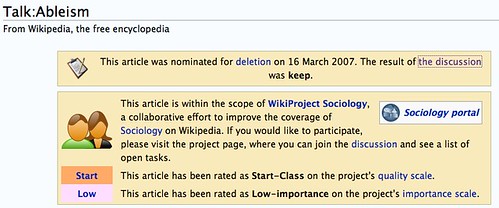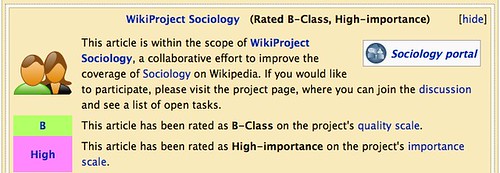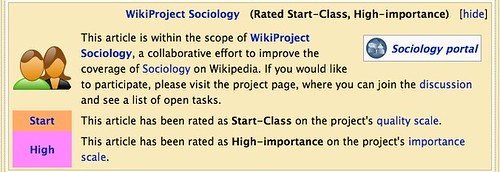So I stumble across this at Diabetes.co.uk: Mobility Scooters Can Increase Your Risk of Developing Daibetes and Heart Disease
“O really?”, thought I, “I wonder how well-controlled that scoldy little piece of disability panic was?” So I read on.
However, recent research suggests that mobility scooters can do more harm than good by heightening the risk of diabetes and heart disease .
“More harm than good?”, thought I, “I wonder who measured that? How did they decide which effects outweighed which in the goodness vs. badness stakes?” So I read on.
Astonishingly, a study of scooter users in the U.S.A discovered that almost one in five developed diabetes after buying one to get around.
“Huh”, though I. “One in five, eh? Hm, that doesn’t sound all that different from the baseline prevalence in the population, let alone the older/ill/disabled population.” So I read on.
The research, published in the American Journal of Cardiology, highlights how multiple benefits to patients’ health from being able to get around more easily are being erased by the effects on the cardiovascular system.
“Erased?”, thought I. “Completely wiped out? Huh. Was it the people concerned who decided this, or someone else?” So I read on.
Researchers are urging doctors to consider the risks of scooter use before making recommendations to patients invest in a scooter.
“*Doubletake*”, thought I. “Doctors should consider the risks? Doctors? Not, say, people with disabilities? Just doctors? Doctors should weigh up the risks before offering any options at all? Doctors should decide?” So I read on.
[…] There have even been incidents when scooters have killed individuals.
OMG RANDOM IRRELEVANT SCOOTERPANIC!
Moving on.
They recruited 102 patients, with an average age of 68, who had obtained medical approval for a scooter and monitored their health over six years. Even though patients stated that they felt better physically and mentally, tests demonstrated that 18.7 per cent developed diabetes during the follow-up period.
“Erm”, thought I, “Right then. Sure enough, it was an older population- nearly seventy years old on average. The prevalence of diabetes in the population older than 60 in the USA is 23.1%, and that’s not people who are already ill and have other risk factors. That’s not really a surprising number.”
“I wonder,” thought I, “I wonder how that control group did, the age- and disability-matched control group, the one who didn’t get scooters at the same time?”
OH WAIT.
Yeah, there wasn’t one. No control group.
Just a group of elderly people with cardiac failure, neurologic disease, disabling arthritis, and chronic lung disease. Just a group of people with disabilities trying to eke out a life and getting used as a Lesson To All Of Us about the dangers of sloth.
The abstract is here, in the American Journal of Cardiology. Effect of Motorized Scooters on Quality of Life and Cardiovascular Risk, Brian W Zagol and Richard A. Krasuski, Volume 105, Issue 5, Pages 672-676 (1 March 2010).
This sterling little doctor-centric chastisement does contain one really useful piece of information:
[…] significant physical and psychological improvements in all quality-of-life categories (p <0.001) [...]
I’ll say that again, ‘cos they buried the lead. After getting a scooter, people experienced:
[…] significant physical and psychological improvements in all quality-of-life categories (p <0.001) [...]
But the authors decided to slap a big ol’ “DESPITE” before this statement about how the lives of people with disabilities were improved by appropriate mobility aids, and instead go on to list the way several laboratory parameters became “worse” over time in this group of ill elderly people. In a study with NO. CONTROL. GROUP.
We have absolutely no idea how these laboratory parameters would have fared had the people concerned not obtained mobility scooters. All we know is that their quality of life improved significantly in all domains.
What the study fails to recognise – among other things – is that the alternative to getting about on mobility aids isn’t a day of jaunty strolling; it’s immobility. The alternative to going out sitting on a scooter isn’t a doubles tennis match and a brisk swim followed by a bootscooting class; it’s sitting at home.
But the quality of life of PWD, the lack of alternatives, is dismissed by these concerned medicos as a relatively trivial aside; as just one factor for doctors to consider before deciding whether to withhold their blessing – and their financial rubber-stamp – to mobility aids:
In conclusion, interventions, such as scooters, that improve self-perceived quality of life, can have detrimental long-term effects by increasing cardiovascular risk, particularly insulin resistance. Physicians should carefully weigh such risks before approving their use, as well as ensure healthy levels of activity afterward.
Dudes. Newsflash. You’re not the ones who should be carefully weighing this hypothetical “risk”. We are. And you sitting there planning to deliberately withhold mobility aid funding to the poorest people in the population because you think they might – not will, only might – see their blood glucose tweak a few points? Not ok.
You don’t get to dismiss the importance our self-perceived quality of life (“self-perceived”? Who do you think is the best person to assess our quality of life? You?) with a parenthetical “Despite”. What is important to us is important to us; you don’t get to override that with your misinformed concern-trolling. You don’t get to decide on your own, then inform us what’s important in our lives. You don’t get to exclude us from the conversation. You don’t get to tell us which risks are worth taking.
You don’t have the moral right to immobilise us based on your imposition of your own value system on our lives. You wouldn’t even have that right if this was good research. When it’s fucked-up hand-waving? Put the journal down, and start seeing real people. The people right in front of you, who are looking for independence, the ability to shop, the ability to socialise, the ability to go to the fucking doctor, the choice to have a better life. The life you’re planning to say “no” to.



